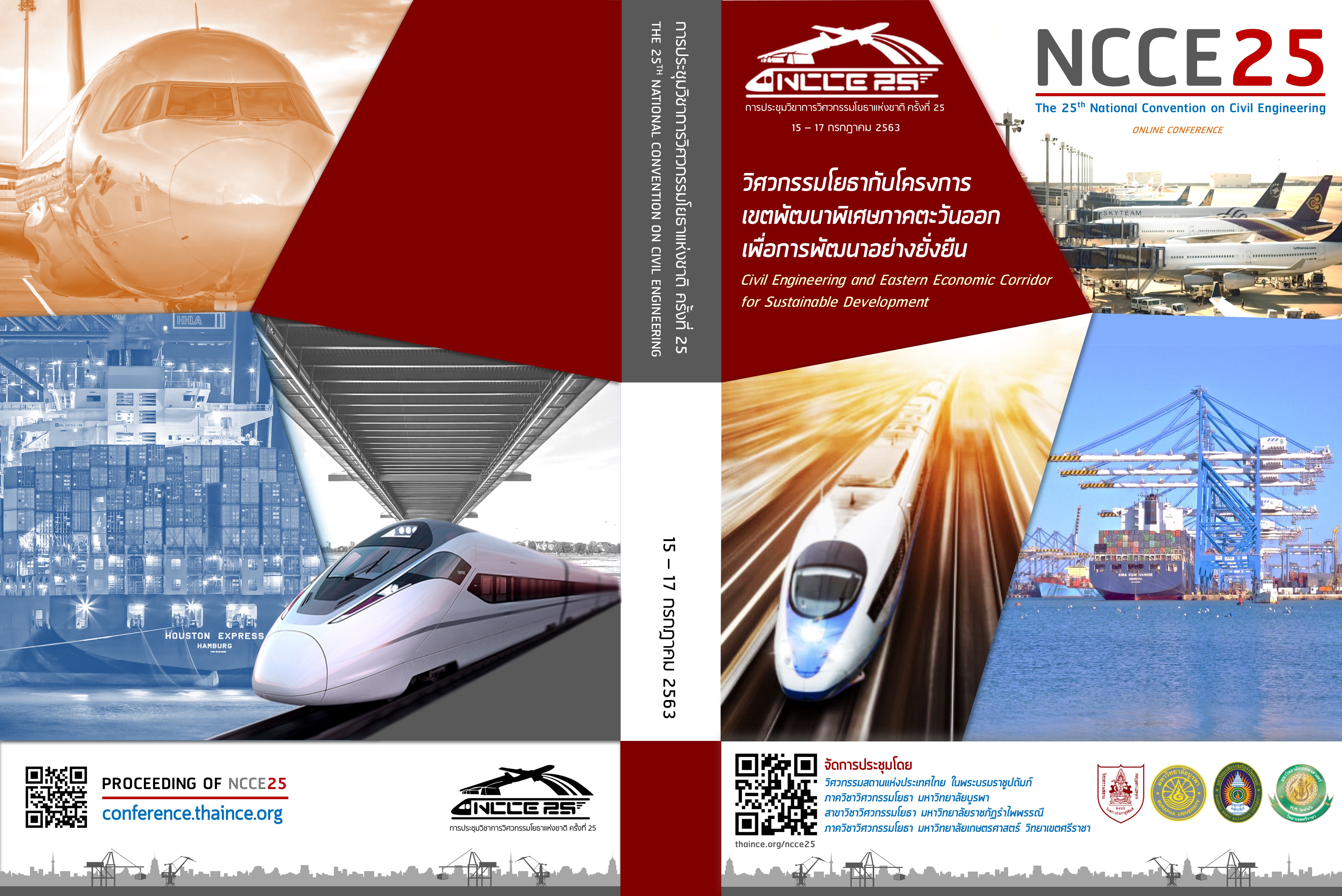Use of capillary barrier for controlling upward movement of saline groundwater in soils
Abstract
A capillary process is widely known as one of a key process inducing soil salinization. The capillary force in unsaturated soils results in upward movement of saline groundwater to the soil surface, and hence the salt concentration and salt crust can be gathered on the soil surface due to evapotranspiration process. In northeastern part of Thailand, salt-affected soils cover almost 1.78 million ha or 18% of agriculture area resulting in sharp decrease in soil productivity, vegetation cover and biodiversity. Moreover, almost 53,160 ha has led to be wasteland due to very high concentration of salt in the soils. In this study, Capillary barrier (CB) was used to prevent upward movement of saline groundwater in the soils subjected to the capillary process. Soil samples were compacted into 1-D physical model using acrylic tube with 15 cm in diameter. Two tests including 1) the soil column without CB layer, and 2) 5 cm CB-gravel layer 2.38 mm-4.75 mm diameters inserted in the soil column were performed. The saline groundwater table with NaCl concentration of 2 g/L was kept constant at 70 cm from soil surface. Five 5TE moisture sensors were used to demonstrate water content, salt concentration and temperature during the tests. The results showed that the movement of saline groundwater subjected to the capillary process can reach soil surface for the sample without CB layer, but cannot reach the surface for the soil column with the CB layer due to low capillary force in the CB layer.
Downloads
Downloads
Published
How to Cite
Issue
Section
Categories
License
บทความทั้งหมดที่ได้รับการคัดเลือกให้นำเสนอผลงานในการประชุมวิชาการวิศวกรรมโยธาแห่งชาติ ครั้งที่ 25 นี้ เป็นลิขสิทธิ์ของ วิศวกรรมสถานแห่งประเทศไทย ในพระบรมราชูปถัมภ์



